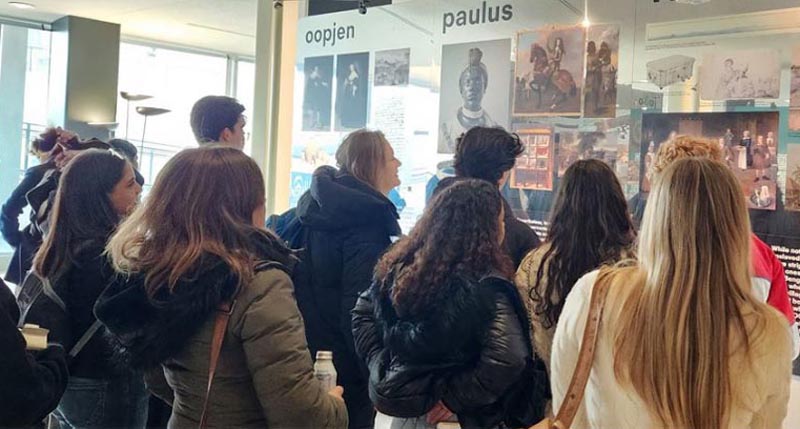 Racism
Racism Education is the “most powerful weapon” in the world’s arsenal to combat the brutal legacy of racism playing out today, the UN chief said on Monday, as the General Assembly met to mark the International Day of Remembrance of the Victims of Slavery and the Transatlantic Slave Trade.
“It is incumbent on us to fight slavery’s legacy of racism,” the UN Secretary-General António Guterres said. “The most powerful weapon in our arsenal is education, the theme of this year’s commemoration.”
Observed on 25 March, the international day commemorates the victims of one of history’s most horrific crimes against humanity that was legalized for more than 400 years, well into the 19th century, resulting in the forced deportation of over 15 million men, women, and children.
Long shadow of slavery
“The scars of slavery are still visible in persistent disparities in wealth, income, health, education, and opportunity,” he said, also pointing to the current resurgence of white supremacist hate.
Just as the slave trade underwrote the wealth and prosperity of the colonizers, it devastated the African continent, thwarting its development for centuries, he said.
“The long shadow of slavery still looms over the lives of people of African descent who carry with them the transgenerational trauma and who continue to confront marginalization, exclusion, and bigotry,” he said.
Teach histories of ‘righteous defiance’
Governments everywhere should introduce lessons into school curricula on the causes, manifestations, and far-reaching consequences of the transatlantic slave trade, he said.
“We must learn and teach the horrific history of slavery, and we must learn and teach the history of Africa and the African diaspora, whose people have enriched societies wherever they went, and excelled in every field of human endeavour,” the Secretary-General said.
He pointed to examples of righteous resistance, resilience, and defiance as Queen Nanny of the Maroons, in Jamaica, Queen Ana Nzinga of Ndongo in Angola, freedom fighter Sojourner Truth, who was born into slavery, and Toussaint Louverture of Saint-Domingue, who transformed a rebellion into a revolutionary movement and is known today as the “Father of Haiti”.
“By teaching the history of slavery, we help to guard against humanity’s most vicious impulses, and by honouring the victims of slavery, we restore some measure of dignity to those who were so mercilessly stripped of it,” he said.
Dismantle the foundations
General Assembly President Csaba Kőrösi said that while the transatlantic slave trade is over, the foundations on which it stood have not been fully dismantled, he said, adding that racism, including anti-black racism and discrimination, are still present in societies.
“Many Africans and people of African descent continue to feel that they are fighting an uphill battle for the recognition of an assault on their rights that was neither repaired nor rectified,” he said.
This is why this Day of Remembrance is so important, because it creates a space to reflect on a dark and shameful chapter of the world’s shared history, he said.
“History, the facts of which should not be distorted, must serve as a lesson for all of us,” he said. “Through education, we can confute any revisionism with undisputable facts, raise awareness of the dangers caused by misconceptions of supremacy past or present, and ensure that no one will ever experience the hell lived by the 15 million we commemorate today.”
“Through education, the painful stories of racism can be transformed into a future of peace,” he said.
‘A more hopeful future’
During the event, Brazilian philosopher and journalist, Djamila Ribeiro, delivered the keynote address, explaining how she has been using the power of education to fight discrimination against Afro-Brazilians. Her work is reflected in her bestselling book ‘Little Anti-Racist Manual’ and her influential Instagram account, which has more than one million followers.
“It’s important to remember that Brazil was the last in the Americas to abolish slavery,” she said. “History needs to be remembered so that, in the present, we can overcome and transform its consequences and build a more hopeful future.”
Also addressing the world body was American university student Taylor Cassidy, recognized as one of TikTok’s 2020 Top 10 Voices of Change, empowering her 2.2 million followers with uplifting videos related to Black history.
“It is crucial to invest in quality education,” she said. “At a time when racism still affects our laws, systems and descendants of its victims, education is the key to countering injustice and moving forward.”
Support Our Journalism
We cannot do without you.. your contribution supports unbiased journalism
IBNS is not driven by any ism- not wokeism, not racism, not skewed secularism, not hyper right-wing or left liberal ideals, nor by any hardline religious beliefs or hyper nationalism. We want to serve you good old objective news, as they are. We do not judge or preach. We let people decide for themselves. We only try to present factual and well-sourced news.







